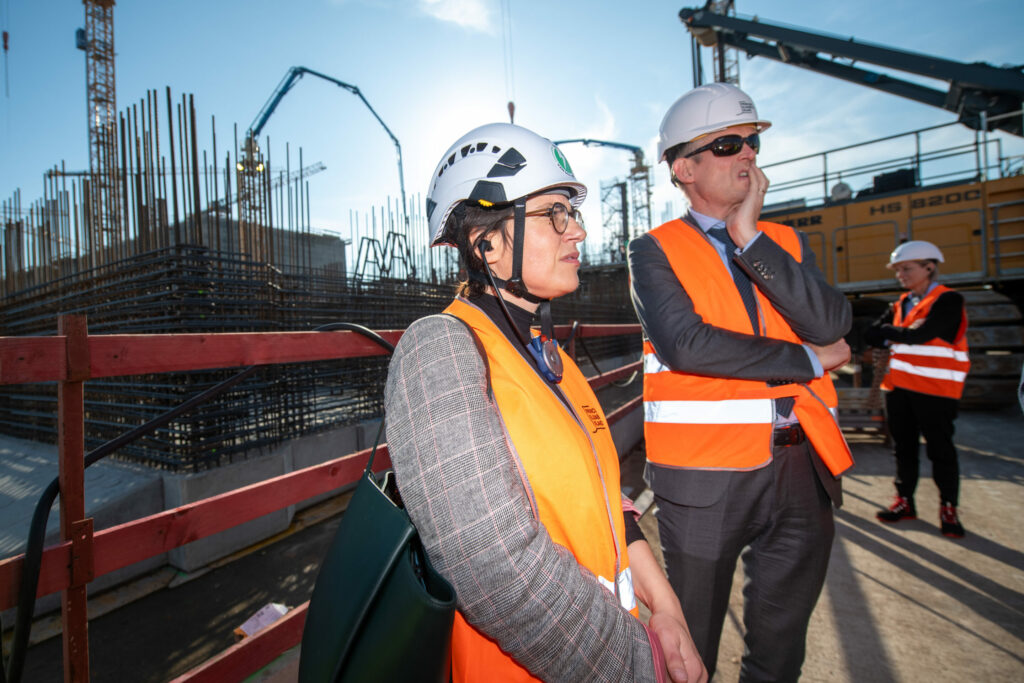Belgium's outgoing Energy Minister Tinne Van der Straeten emphasised on Tuesday in a parliamentary commission that it would be premature to abandon the Princess Elisabeth Energy Island project.
Once fully connected, this North Sea infrastructure will have the capacity to meet 30% of Belgium’s energy needs through wind power and interconnections with other countries.
However, the cost projections for the project made in 2021 have now skyrocketed. In March 2023, costs were projected to be €3.6 billion, up from €2.2 billion, due to inflation post-Ukraine war, volatile prices of construction materials, and supply chain bottlenecks, combined with high demand. By June 2024, costs had escalated to €7 billion.
Informed of these confidential estimates in June, Van der Straeten consulted CREG (the federal body that regulates gas and electricity) and Elia (which operates Belgium's electricity network). Correspondence confirmed these increases were due to uncontrollable European and global market dynamics.
The "energy island" will link several major North Sea wind farms to the UK and Danish electricity grids. Van der Straeten has met twice with her UK counterpart Ed Miliband to discuss the rising costs. Meanwhile Denmark is asking Belgium to bear higher costs for its wind farms, which Belgium has refused.

Energy minister Tinne Van der Straeten pictured during a helicopter flight at the inauguration of the first zone of an offshore wind farm in the North Sea, Wednesday 20 October 2021 in Ostend. Credit: Belga / Kurt Desplenter
What’s next for the project?
Major industrial electricity consumers have called for a halt to the island’s construction. “A thorough analysis is necessary before moving forward,” said MP Bert Wollants (N-VA).
Other parties in the federal negotiations took a more measured tone. “Many questions remain,” noted Mathieu Bihet (MR), expressing concerns about escalating costs potentially reaching €10 billion. Jean-Luc Crucke (Les Engagés) stressed the need for transparency for households and businesses while recognising the project’s long-term utility.
Van der Straeten acknowledged the concerns but cautioned that Belgium’s electricity consumption is 83 TWh. She said this will rise to between 117 TWh and 141 TWh by 2036, with 50 to 60 TWh needing to be covered by new production capacity or imports. “Whether the project goes ahead, is delayed, or a phased approach is adopted, the analysis must consider what happens if we don’t have access to this energy.”
Cost increases in such infrastructure projects are not unusual. Van der Straeten cited examples like the Brussels Metro 3 and the Oosterweel link around Antwerp, for which costs rose from €3.5 billion to €10 billion.
Parliament will continue its work on this issue with several MPs requesting documents related to the exchange between the Minister, CREG, and Elia.

